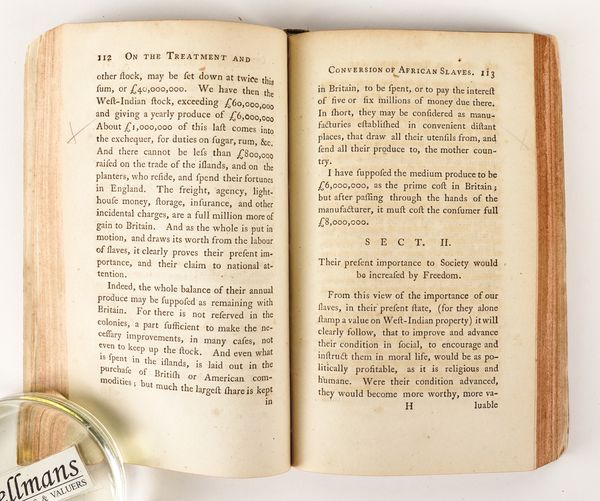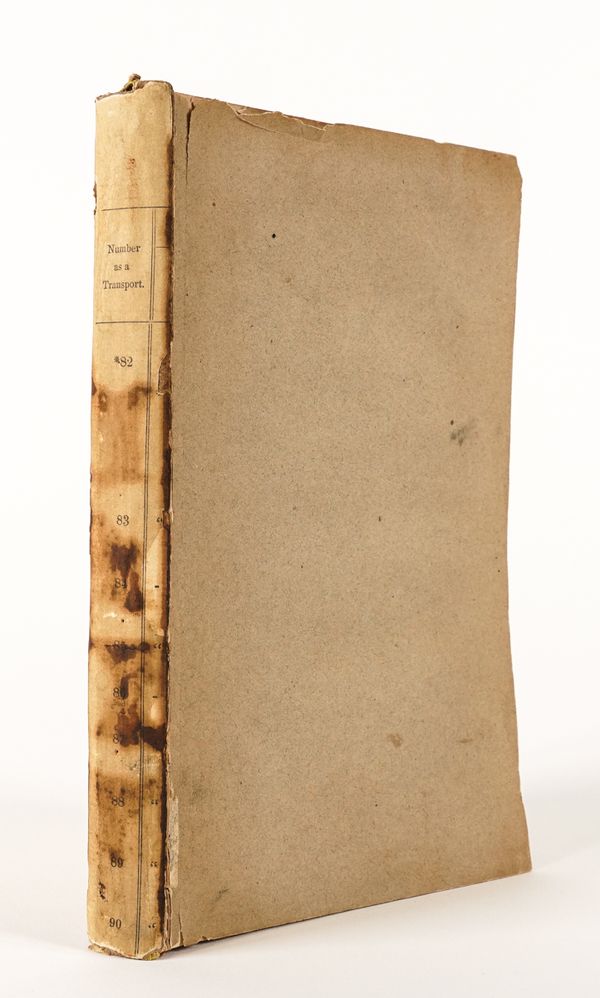SLAVERY - James RAMSAY (1733-89). An Essay on the Treatment and Conversion of African Slaves in the British Sugar Colonies, London, 1784, 8vo, errata and advertisement leaf, unbound but spine solid and text-block holding. FIRST EDITION.
| Estimate: | £400 - £600 |
| Hammer price: | £950 |
SLAVERY - James RAMSAY (1733-89). An Essay on the Treatment and Conversion of African Slaves in the British Sugar Colonies. London: "Printed and Sold by James Phillips, George-Yard, Lombard-Street," 1784. 8vo (206 x 125mm). Errata leaf and one-page of publisher's advertisements for books "Published by the same Author, and sold for the Benefit of the Maritime School" at the end (without a half title, ink-spotting to pp.116 and 117, occasional very light mainly marginal spotting and staining, a few darker spots). Unbound but spine solid and the text-block holding with no loose leaves. The spine appears to have been made up from part of an old form, headed "Number as a Transport", with a column of numbers (*82, 83, 84, 85, 86, 87, 88, 89 and 90), possibly representing years (i.e. 1782, 1783, etc.) beneath. Provenance: "Board of Trade Library" (old stamp on title); some passages marked with pencil crosses in the margins. FIRST EDITION of this work whose "publication was the most important event in the early history of the anti-slavery movement" (DNB). "The abolitionist movement had already made a small beginning, and, on the advice of neighbours, Ramsay revised and published in 1784 'An Essay on the Treatment and Conversion of African Slaves in the British Sugar Colonies', which he had been working at for several years. In this work he discussed the position of master and slave in ancient and modern times, argued that society and the owners themselves would benefit by free labour and that under existing conditions the slave could not be benefited morally or intellectually, and finally, meeting the various objections that had been made on the ground of the inferiority of the negro, concluded with suggestions which practically meant the abolition of slavery. The publication of this essay was the most important event in the early history of the anti-slavery movement. It at once drew a number of angry replies and personal attacks upon the author; and during that year and the next the brunt of the controversy was borne by Ramsay almost unaided ...." (DNB). Goldsmiths' 12770; Kress B772; Sabin 67716.




